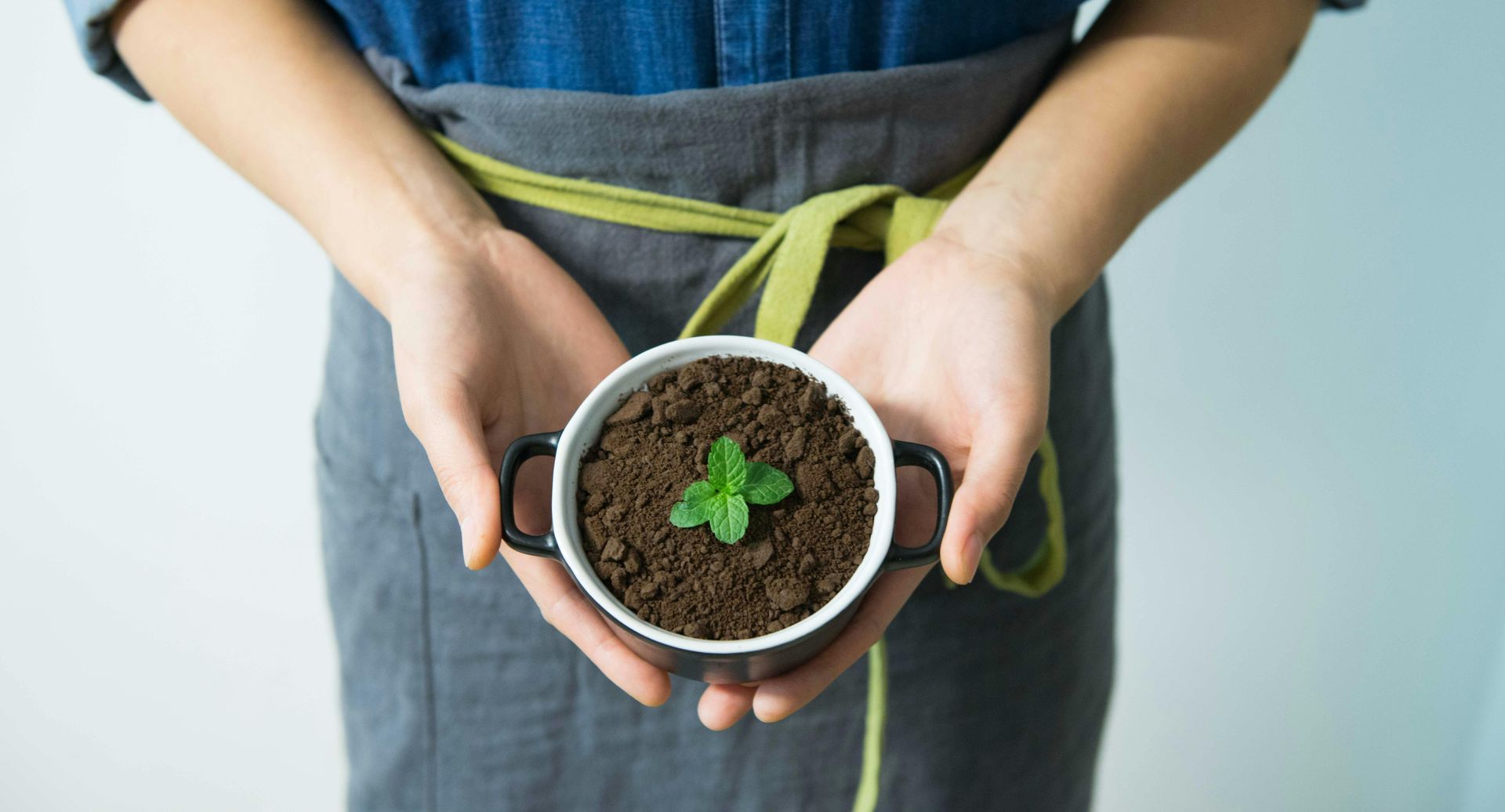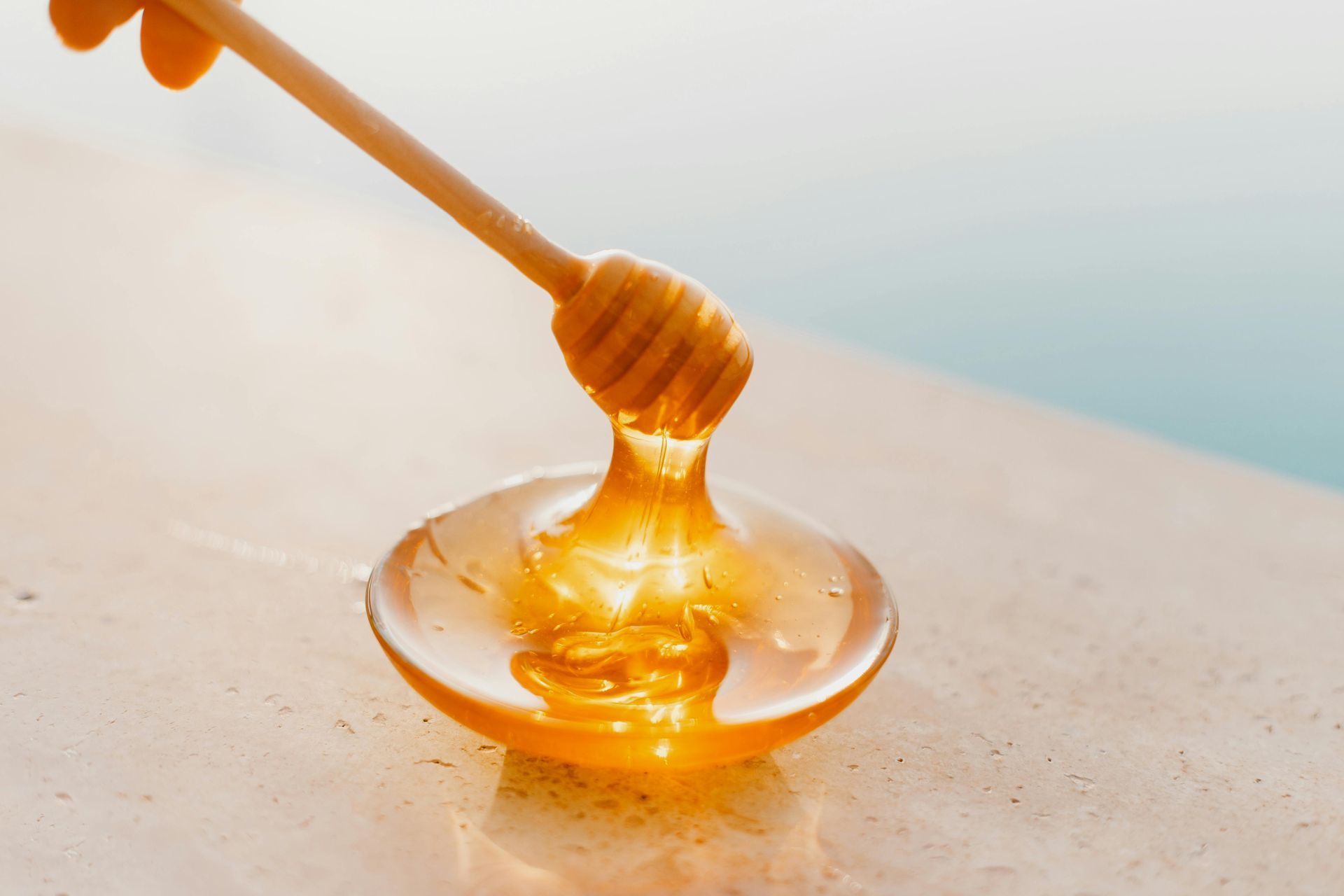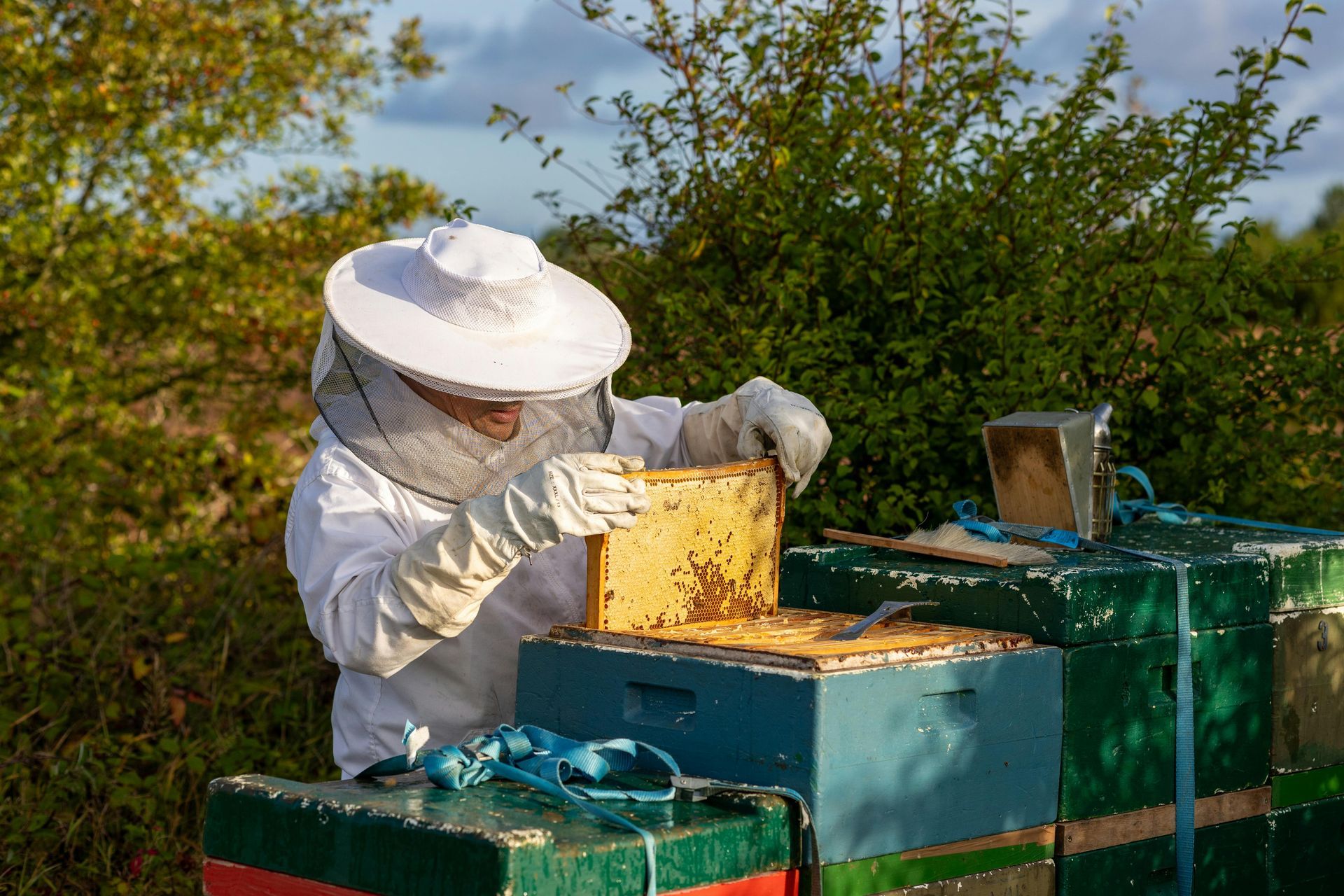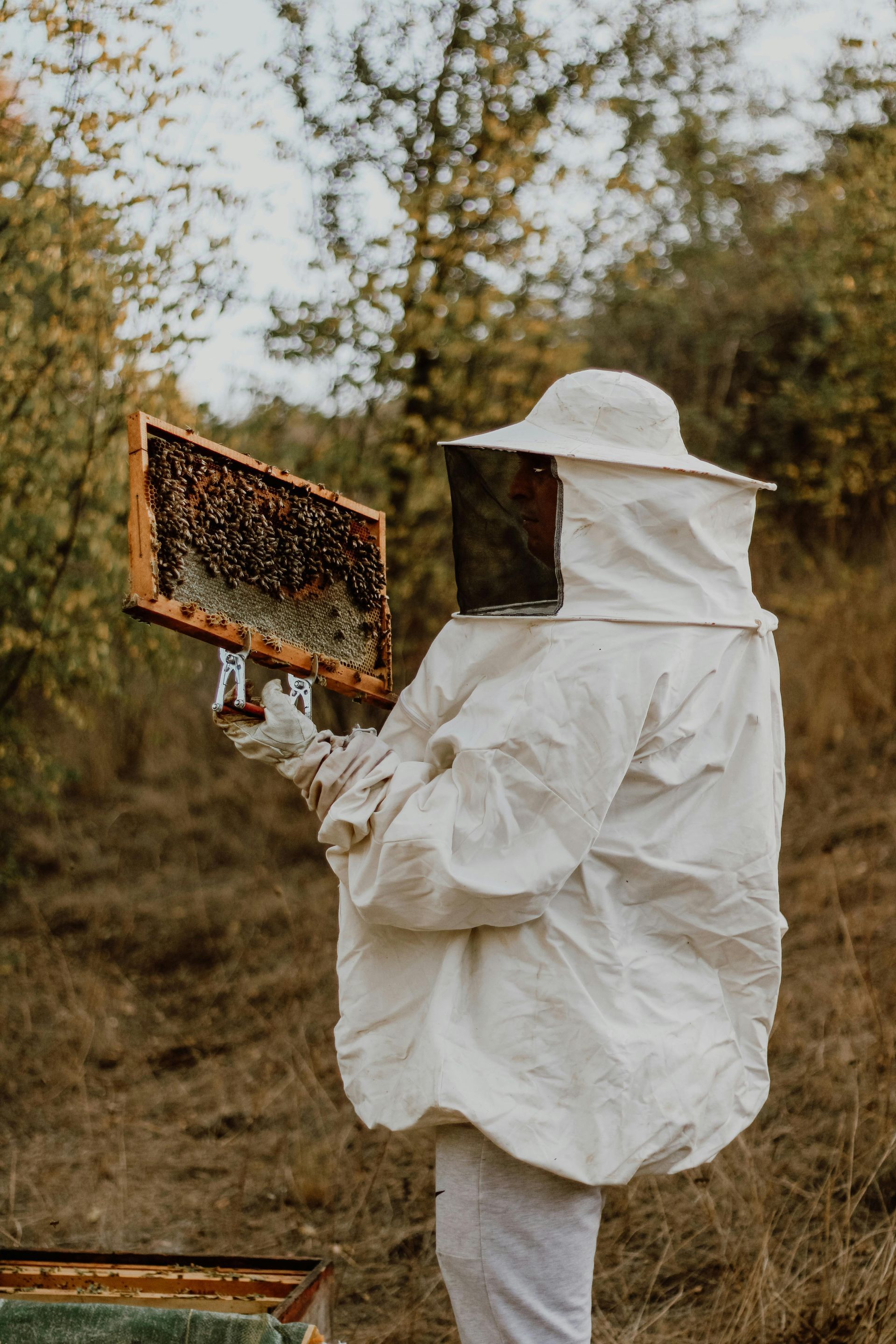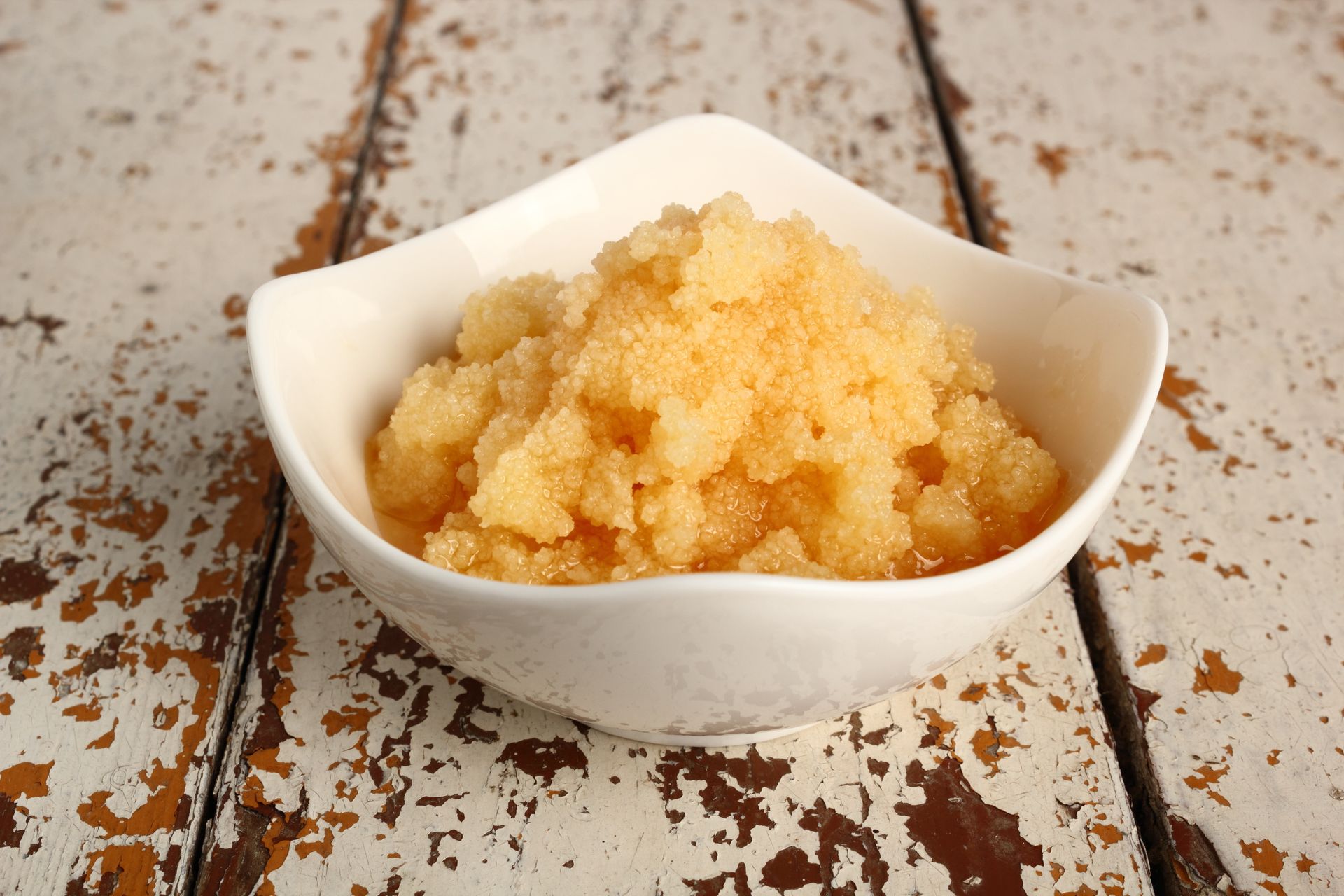The Essential Role of Bees in Our Ecosystem—and How You Can Help Protect Them
If you’ve ever enjoyed a juicy apple, a spoonful of almond butter, or a colorful garden bursting with flowers, you’ve experienced the work of one of nature’s most dedicated workers: the bee. Bees aren’t just responsible for producing honey—they’re central to the health of our ecosystems and food supply.
But here’s the problem: bee populations are declining at an alarming rate. If you’re wondering how you can make a difference (and trust me, every bit helps), read on. I’m going to share why bees are so crucial, the challenges they face, and some easy ways to support them, whether you’re a business owner or just someone who values the environment.
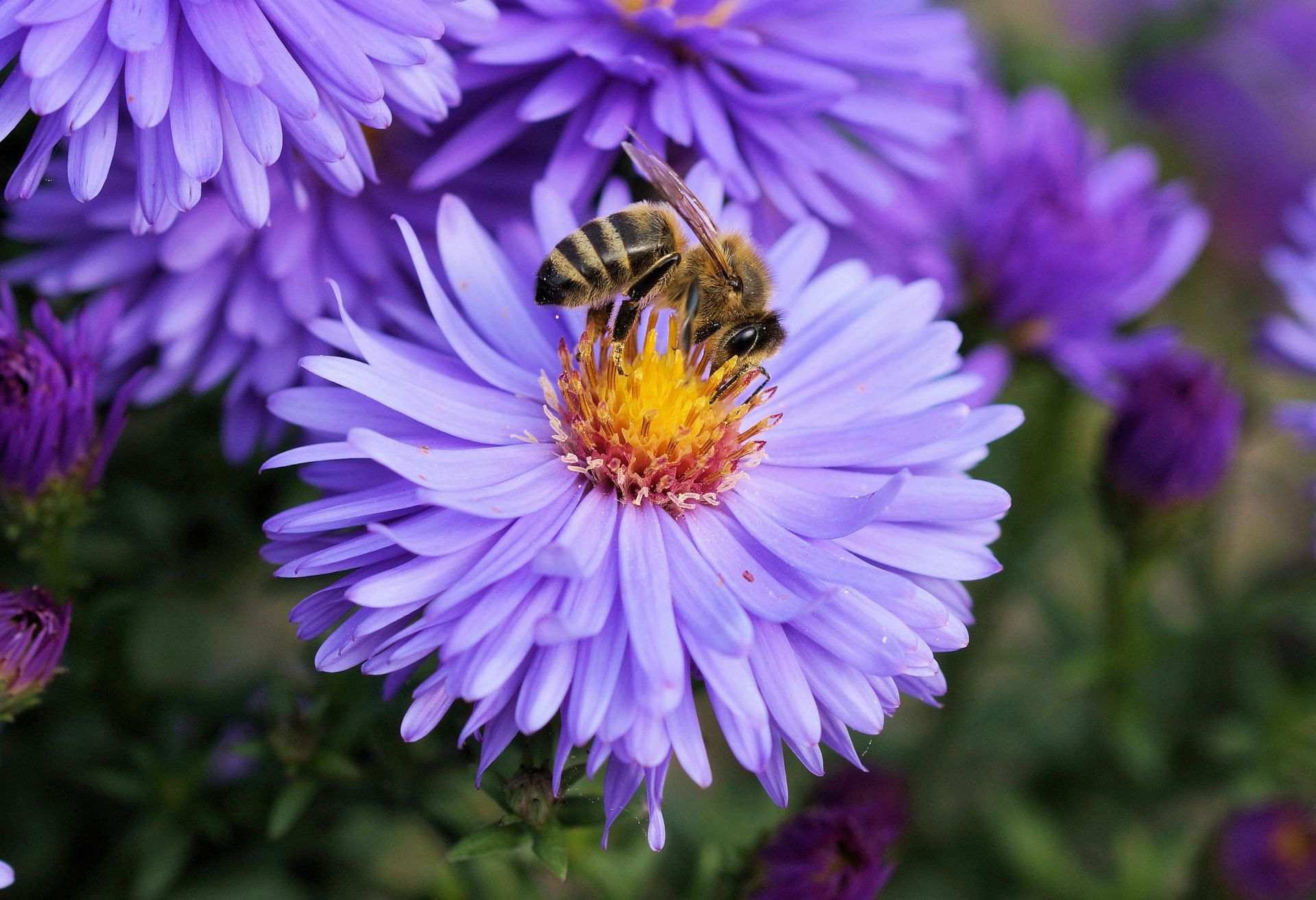
Pollination: The Foundation of Our Food System
Did you know that bees are responsible for pollinating around 35% of the world’s food crops? In other words, more than one-third of what we eat depends on bees doing their job right. From fruits like apples, cherries, and strawberries to nuts, coffee, and even chocolate, many of our favorite foods need bees to thrive.
Bees are some of the most efficient pollinators on the planet. As they move from flower to flower, collecting nectar and pollen to bring back to their hive, they transfer pollen grains between plants. This transfer allows plants to produce fruit and seeds, which in turn feeds animals, including us. Without bees, our diets—and ecosystems—would look a lot different.
Bees as Biodiversity Boosters
Bees don’t just help humans by producing food; they’re also champions for biodiversity. Their pollination efforts help native plants thrive, which supports wildlife like birds, insects, and even small mammals. The plants they pollinate form the basis of many ecosystems, creating habitats and food sources for a wide range of species.
Biodiversity is more than just a buzzword; it’s essential for a balanced, resilient environment. When bees support the growth of various plant species, they’re laying down the foundation for healthier, more diverse ecosystems that can withstand changes in climate and human impact.
The Threats Facing Bees Today
If bees are so important, why are they in trouble? A few main challenges have been pushing bee populations to dangerous lows:
Pesticides: Chemicals used in agriculture, especially neonicotinoids, can harm bees’ nervous systems, making it harder for them to forage, navigate, and reproduce.
Habitat Loss: Urban development, industrial farming, and deforestation reduce the natural spaces where bees can live and find diverse food sources.
Viruses: Creatures like mites and hive moths cause extreme damage to bee populations by acting as viruses, slowly deteriorating the health of a whole beehive.
Each of these factors alone is a problem, but combined, they create a perfect storm that’s hitting bee populations hard.
How Businesses and Individuals Can Help Support Bees
So, what can you do to help? Plenty, actually. Here are a few simple but impactful ways to get involved:
Plant Bee-Friendly Flowers: Fill your yard or balcony with plants that attract bees, like lavender, sunflowers, and clover. Opt for native plants if possible, as they provide the best food sources for local bee species.
Avoid Harmful Pesticides: Steer clear of pesticides and herbicides in your garden. Look for organic or bee-friendly alternatives that won’t harm pollinators. If you’re a business with landscaping needs, this is an easy way to show your commitment to sustainability.
Buy Local, Raw Honey: Supporting local beekeepers does more than give you a delicious sweetener; it also helps fund their conservation efforts. When you choose raw honey over mass-produced varieties, you’re supporting ethical, sustainable practices that help keep bee populations healthy.
Partner with Eco-Friendly Businesses: As a business, partnering with sustainable, bee-friendly companies not only supports a great cause but can also enhance your brand’s reputation. Consumers today are more eco-conscious, and they’ll notice when you make a real effort toward sustainability.
Join Our HoneyShare Program: If you’re looking to make an even bigger impact, consider joining our HoneyShare program. This lets you support beekeeping directly, helping local beekeepers maintain healthy hives and contribute to the ecosystem. You get to own a hive (or a 'share' of a hive) without doing any of the work. And yes, you get to enjoy the honey too!
The Bee Partner: Helping Businesses Make a Difference
At The Bee Partner, we work with companies and individuals that want to create a positive environmental impact. By offering local HoneyShare opportunities and corporate sustainability beehives, we make it easy for businesses and individuals to directly support bee conservation and sustainability efforts. Plus, we believe in making these efforts mutually beneficial. Not only do we provide our business Bee Partners with high-quality, locally produced honey, but we also work with them on social media publicity and community engagement—so they can get credit for the impact they’re making.
Together, we can make a big difference, not only for bees but for our entire ecosystem. If your business is interested in making a real impact while also seeing a return on investment, let’s connect. Helping bees doesn’t just make environmental sense; it’s a step toward building a sustainable brand that your community will recognize and appreciate.
